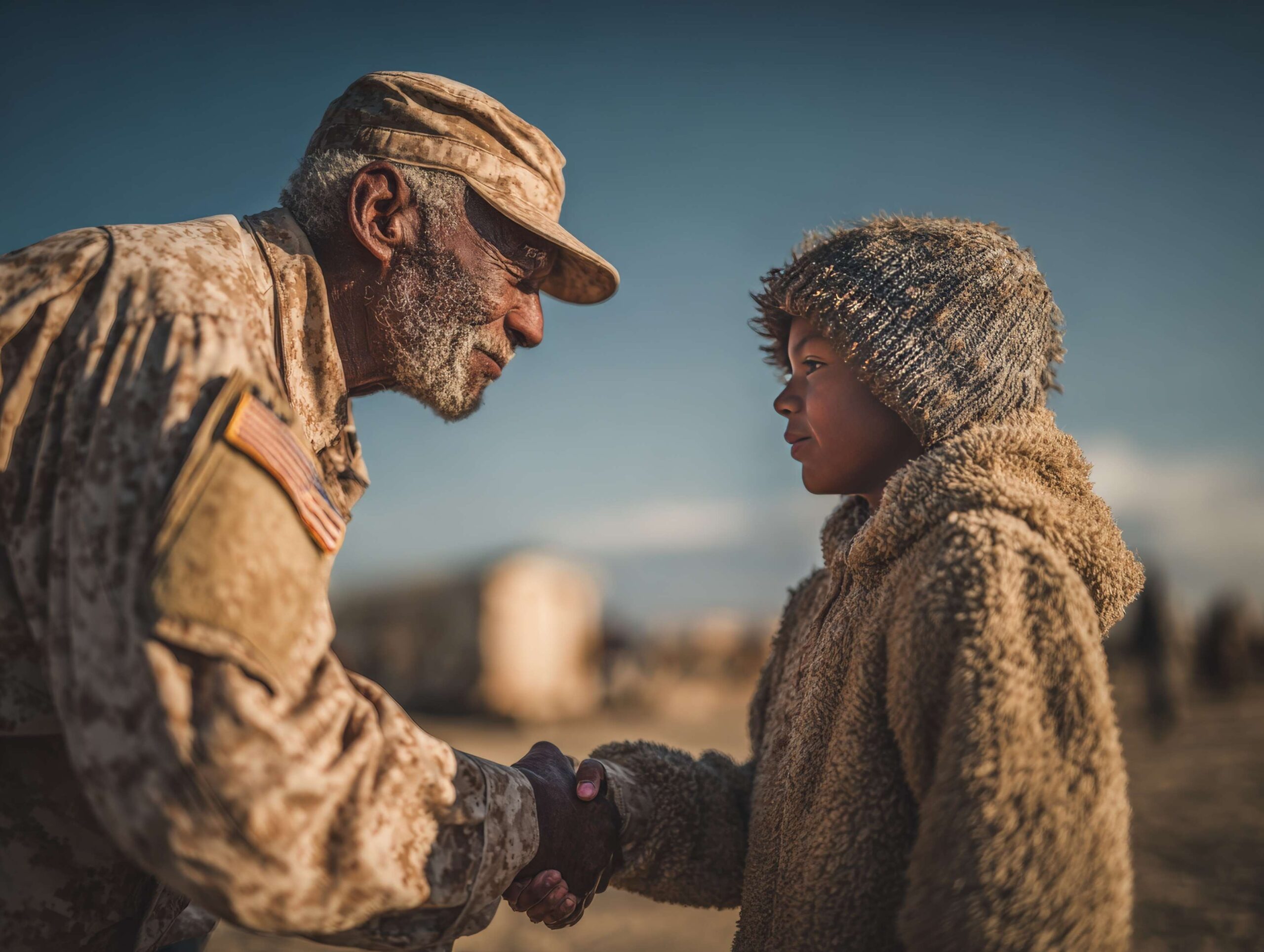Giving Back to the Next Generation
As a Navy veteran and Surface Warfare Officer, I’ve had the privilege of leading sailors, navigating high-stakes missions, and representing something bigger than myself. But one of the most meaningful roles I’ve taken on isn’t found in a uniform or aboard a ship—it’s found in the heart of my community, working with at-risk youth.
Growing up in Missouri, I didn’t have a roadmap. I had to figure a lot out on my own, and I made my share of mistakes. But I was also fortunate enough to have a few people along the way who believed in me. Now that I’ve experienced what structure, discipline, and service can do, I see it as my responsibility to be that person for someone else. Veterans have something powerful to offer our communities, especially our youth—and it starts with showing up.
Why Mentorship Matters
Let’s be honest: a lot of young people today are struggling. Some are growing up in tough environments, surrounded by poverty, violence, or lack of guidance. Many of them don’t see a future beyond their current situation. That’s where mentorship comes in—not as a solution to every problem, but as a spark. Sometimes, all it takes is one consistent adult who listens, encourages, and pushes them to see beyond their zip code.
Veterans are uniquely equipped to be that spark. We’ve lived through challenges, overcome adversity, and learned the value of teamwork, discipline, and accountability. When we share those lessons with young people—especially those who are at risk—we plant seeds that can grow into real, lasting change.
What Veterans Bring to the Table
Military life teaches a lot more than tactics and strategy. It teaches character. It teaches resilience. It teaches how to lead with your actions, not just your words. These are the same qualities many young people are hungry for—especially those who feel overlooked or misunderstood.
Veterans bring experience, structure, and a deep understanding of what it means to serve. We know how to operate in high-pressure situations, how to support a team, and how to bounce back from failure. We also know how to listen, how to adapt, and how to lead by example. These are exactly the kinds of influences our youth need.
I’ve volunteered at youth centers for several years now, and I’ve seen the impact firsthand. Some of these kids have never had a consistent male role model, or any role model at all. When a veteran takes the time to show up, listen, and build trust, it opens a door that might have otherwise stayed shut.
Building Trust, One Conversation at a Time
Mentorship isn’t about preaching or giving lectures. It’s about connection. I’ve learned that listening is just as important as speaking—maybe even more so. These young people want to be heard. They want someone to take them seriously. And when you sit across from a kid who’s been let down over and over again, you realize that building trust isn’t a one-time thing—it’s a process.
Sometimes, it’s talking about school or sports. Other times, it’s sharing my own story—how I started in food service jobs, joined the Navy as a cook, and worked my way up. I don’t sugarcoat anything. I tell them about the tough days, the setbacks, the times I almost gave up. And then I show them that growth is possible. That their story doesn’t have to end where it started.
Creating a Path Forward
One of the things I always try to give the young people I work with is a sense of direction. Not everyone’s going to join the military, and that’s okay. What matters is that they see their potential. Whether it’s college, trade school, entrepreneurship, or service, I want them to know there’s more out there than what they see every day.
Veterans can help create those pathways—not just by talking about opportunities, but by helping them take the steps. That might mean helping someone fill out a job application, practice for an interview, or sign up for a GED program. Small things can lead to big breakthroughs. And when you walk beside someone on that journey, it can change everything.
The Ripple Effect
One of the most powerful things about mentorship is that it multiplies. When a young person sees what’s possible, they begin to believe in themselves. And when they believe in themselves, they make better choices. They influence their peers. They start to dream bigger. That’s the ripple effect—and it’s what keeps me coming back.
Our communities need more of that. They need people who’ve walked through fire and come out stronger. People who can say, “I’ve been there, and I believe in you.” Veterans have the credibility and life experience to lead that charge. We’ve already proven we can serve our country. Now it’s time to serve our neighborhoods.
Final Thoughts
If you’re a veteran wondering what’s next, I encourage you to look around your community. Find a youth center. Volunteer at a school. Offer to speak at a local event. It doesn’t take much to start, just your time and your heart.
Because at the end of the day, mentorship isn’t about saving anyone—it’s about walking alongside them and reminding them that they matter. That they have worth. That someone believes in their future.
And sometimes, that belief is the very thing that changes a life.
